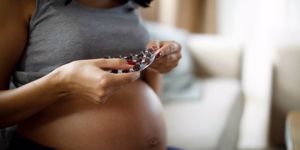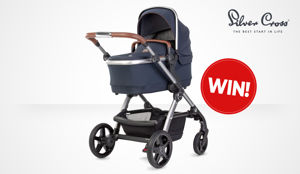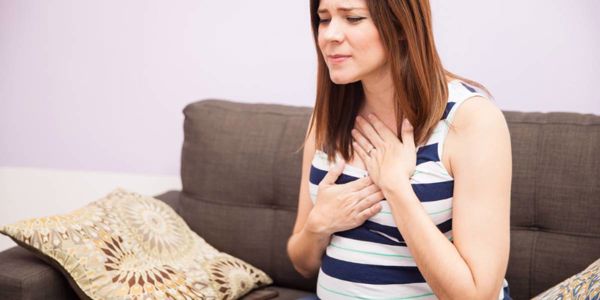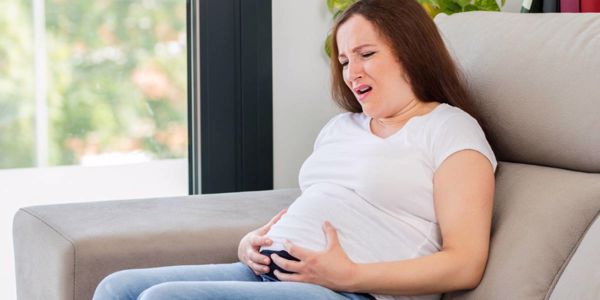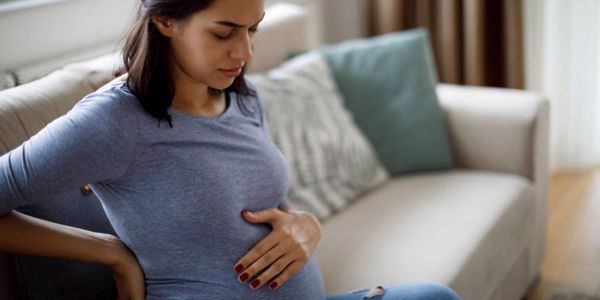During pregnancy, iron is needed to make blood cells and help oxygen be carried around your body and to your baby. Iron deficiency anaemia can occur during pregnancy and can often be caused by a lack of iron in the diet.
Mothers most at risk of iron deficiency during pregnancy are those who had low iron levels before pregnancy, are vegetarian or vegan, are carrying more than one baby or are under 20 years old.
Symptoms of mild deficiency can include tiredness and low energy. A more severe deficiency (called iron deficiency anaemia) is associated with heart palpitations, pale skin, shortness of breath, brittle nails, thinning hair and mouth sores/ulcers. If you get iron-deficiency anaemia your doctor will likely prescribe some iron supplements for you because diet alone would be unlikely to do much.
In the UK many women do routinely use iron supplements during pregnancy but in most cases, it is unnecessary and may even be disadvantageous as there are often side effects such as constipation or nausea. Your body is really clever at slowing down digestion to increase the absorption of iron from your food & if you try and include more sources of iron into your diet you shouldn’t need to take supplements. Your baby will suck iron from you and store most of their iron during the last trimester. Often even if you are iron deficient your baby will likely not be at birth!
There are different types of iron: haem and non-haem
- Animal sources such as red meat (beef, lamb and pork) are rich in haem iron. Fish and chicken also contain a good source of haem iron in smaller amounts.
- Non-haem sources of iron which are found in plant foods are not as easy to be absorbed even if the food is high in iron. They are still good sources however and include black beans, apricots, kidney beans, almonds, figs, dark green leafy veg (spinach, broccoli & cabbage), tofu, nuts and seeds.
- If you are vegan, sources of iron include lentils, chickpeas, beans, tofu, seeds (chia, linseed, hemp, pumpkin) dried apricots, figs and raisins, fortified breakfast cereals. These foods can also be good sources of protein and zinc, in pregnancy, an extra 6g of protein per day is recommended.
Useful tips:
- Haem iron increases the absorption of non-haem iron so it’s a good idea to have a side of spinach with your burger!
- Eat a source of vitamin C with your meals to help the absorption of iron (e.g. peppers, broccoli, tomatoes, fruit juice, strawberries are good sources)
- An interesting nutrition fact is that cooking in a cast-iron skillet can you the food you cook absorb some iron!!
- Tea and coffee contain components which can slow the absorption of iron so try not to drink these with your meals but save them for between meals.
- Try iron-fortified foods such as breakfast cereals.
Most people with anaemia will have a healthy pregnancy but if it is untreated, it could cause complications. You should have your bloods checked at your booking appointment and at 28 weeks, but if you are concerned you have symptoms of anaemia, chat to your GP or midwife.
References:
B Thomas, J Bishop. Manual of Dietetic Practice (2011) 4th Edition. Blackwell publishing. Chapter 3.1, Pregnancy
BDA (2017) British Dietetic Association. Food Fact Sheet – Iron. Available at: https://www.bda.uk.com/uploads/assets/f2abf0e1-fa59-49db-a0afb1cb1bf9a878/Iron-food-fact-sheet.pdf. Accessed July 2020.


